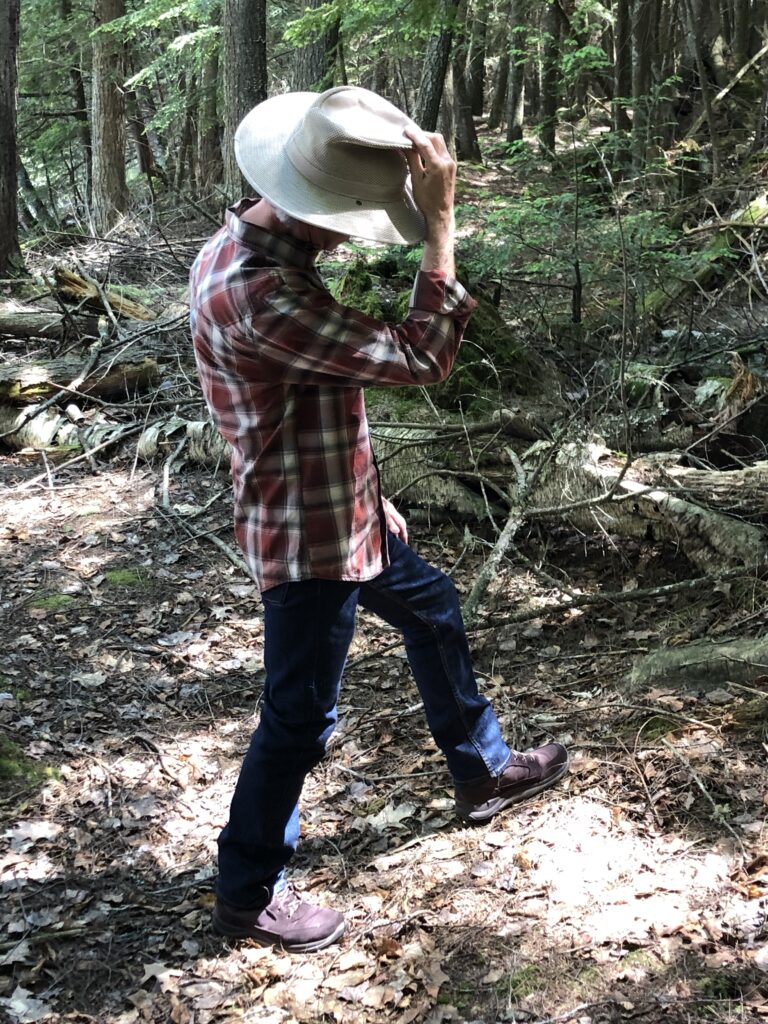“Know You Rider” is about as trad as you can get. It’s been done innumerable ways by a host of artists with varying lyrics. Its origins are shrouded in mystery. But it’s always been about “(I) know you rider, gonna miss me when I’m gone.”
In high school I played the Hot Tuna version arranged by Jorma Kaukonen. He played acoustic guitar on the song on the 1970 self-titled album by the band. It was fingerpicked in the of key of A with a distinctive rhythm, top and bottom.
I never really researched it origins. In those days that was not so easy to do, especially for obscure versions of folk tunes. If you didn’t have the record you were out of luck. I think my bandmate Joel Zifkin proposed a version that was influenced by the Grateful Dead. We played it in the key of D based on a finger-picking rhythm that would have been second nature for me back then. I used drop-D tuning.
The Harlequin arrangement was credited to Joel Zifkin (violin), Howard Engel (guitar/vocals), Linda Morrison (vocals), Jim Dobbins, (bass), and me (guitar/vocals). The arrangement was about virtuoso violin, fast fingerpicking, and exquisite three-part vocals. It’s a shame the band never got a chance to record its version—we really had it down. That’s partly why I wanted to recreate elements of that arrangement on Roots and Branches.
A Little Vocal Magic
My rearrangement of the Harlequin arrangement included the addition of drums, electric guitar in place of violin, and a role reversal in the vocal arrangement. I sang the “lead” vocal in the song, the melody, while in the original Howard sang verse 2 “Loving you baby…” and Linda sang verse 3 “I lay down last night…” In my rearrangement, Lenne and Eliza doubled Howard’s tenor part and Mark Christine took Linda’s part with a few variations. I sang verse 3 because Mark wasn’t in the picture yet when that part originally came up for recording. So he took the high tenor harmony that lends a sweet Timothy B. Schmit aura to that verse in particular. Other than that, the vocals stayed true to the original arrangement. My part didn’t change one bit.
I never heard any other version like this. It’s not lead vocal with two backups—it’s three-part lead with each part receiving equal emphasis. In folk, that’s as old as Peter, Paul, and Mary. Howard was well-schooled in that as a young folk musician playing in the duo Howard and Shelley in the mid-60s. Partly due to Howard’s influence, we were next-next gen in terms of the precision and the power of the vocals by the mid-70s. As you can readily hear, our vocal “Know You Rider” if you listen to one of the Grateful Dead’s live recordings of the song our version bears no resemblance to theirs.
I took great care to map out the harmonies from two old cassettes of Harlequin performances. It took a lot of doing, but it came out right. Once you know three-part harmony arranging and you know the voices, it’s not rocket science.
In Harlequin, we worked these harmonies out in live rehearsals in the basement of the Ste. Famille Youth Clinic, where we routinely rehearsed. No mics, my guitar, standing in a circle, just working out the parts. Joel lent his amazing ear and his comprehensive theory background to give us the suggestions we needed to move quickly through the vocal arrangement. They were all head arrangements. Any vocal band will tell you there’s nothing better than working this way. I’m not saying it’s a lost art, but in some ways it is because there are so many shortcuts and technology to fall back on today. But as you can hear, the method stands the test of time.
It was an honor to record my version with Lenne, Eliza, and Mark. They are such fine singers, and they each possessed an intrinsic ear for the style. Eliza Blue had long been working in folk-based music, and Lenne and mark leaned in to it instantly.
My lead guitar work on acoustic and electric is true to the spirit of the song, and I hope to Joel’s original part in some degree, but unlike the vocals, it constitutes a reimagining of many of the lines. It’s just my take, because, as with the other two songs in this medley, I could never recreate on guitar what he did on violin. It was the last track recorded for the song and the album. By the time you hit the outro [at 15:58] you know it was a big thing and it’s over. So it is a tribute. In a way it’s all a tribute.
There were moments to shine on any given line in this song and we all did, we all shone. Things like John O’Reilly’s drumming where you realize he’s on this perfect train groove in verse 5 (“I wish I was a headlight on some northbound train…”) [14:03]. Or when Lenne comes in on lead vocal on “Loving you baby is easier than falling off a log…” I wish Howard could hear that. Or Mark on harmony on “My mind it was flying like the wild geese to the west…” Or verse 7, the quiet verse, [15:00], that highlights just how smooth the vocals really are.
That’s why we do these things, it’s just a little bit of magic. Great players have an invisible way of making things their own and I am honored to have worked with so many over the years—and now—as we left our mark on this trad gem with the spirit of Harlequin at our backs.
